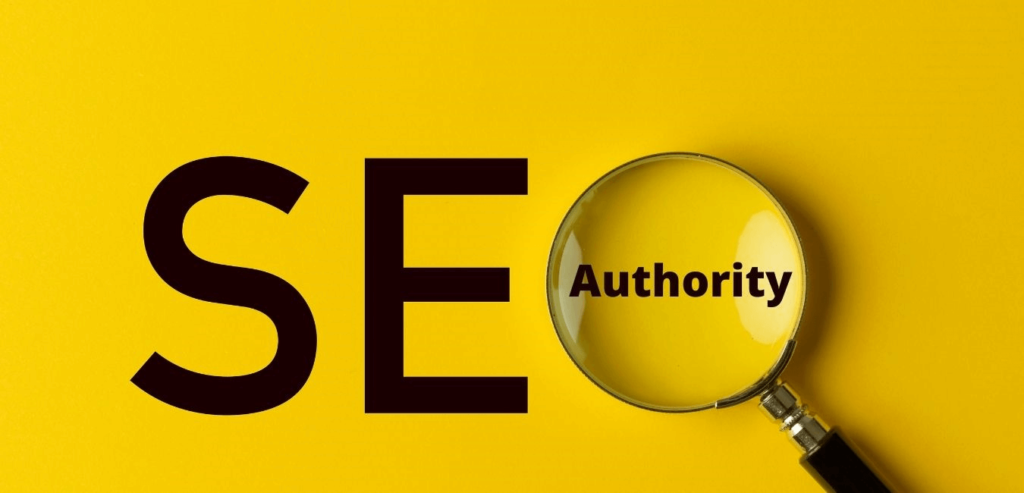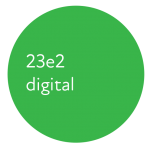© 23e2 Business Services Inc. | Working With 3rd Parties
Domain Authority and Page Authority
How do they affect your SEO?

When you’re trying to rank for search engines have you ever noticed that there are a few websites that consistently rank at the top for the contents that they put out?
Sure, it might be because they are creating great content while following SEO best practices.
But so are you.
So why is their content outranking yours?
It could be because they have a higher authority than you.
Let me explain.
What is Authority?

Authority is a qualitative metric that search engines use to determine the relevance of your website’s content. This means your website’s authority can impact the visibility and rankings of your content in the search engines.
The higher your authority the more likely your content will appear on the first page of the search results.
This makes a lot of sense when you think about it.
When you are feeling sick, where do you go for advice?
Your doctor I would imagine.
You trust your doctor because they are professionals in their field.
This is true for websites as well.
Google wants to deliver quality content from authoritative sources that users can trust. And to become an authoritative source, you need to prove that your content is trustworthy and can add value to users.
With that being said, just because you have high authority doesn’t always guarantee your content to rank for the first page of the search results. You’d still need to keep up with your other SEO efforts.
What determines your authority?
There are many factors that search engines take into account when assessing your website’s authority. With the two most impactful being content and links.
Content

If you are familiar with SEO then it shouldn’t come as a surprise that great content is more likely to appear in search engines. If you want to increase the authority of your website, then you’ll need to provide informative content that is original and valuable. To do this you’ll need a solid content marketing strategy.
Aside from creating great content, you need to be creating the ‘right’ content. Your content needs to be relevant to your audience’s search intent and provide the answers that they are looking for.
This helps search engines to assess how well your web pages can address certain topics and how their users can benefit from your content.
These are signals that search engines look for when assessing your authority.
Links

Every link that points to your site acts as a vote of confidence for your website. These are known as backlinks.
However, not all links are valued equally.
A link from an authoritative source such as The New York Times will be more valuable than a link from an unknown website. This is why it’s important to not focus solely on the number of links. But also on earning quality links from authoritative sources.
As you continue to build a strong link profile, you are sure to increase your ranking potential.
Domain Authority vs Page Authority
So far, we have discussed authority as a singular concept. But actually, there are two distinctive types of authority:
Page Authority

This is a measurement developed by Moz that predicts how well each individual page on your website will rank in the search engines. You can check on Page Authority with SEO tools such as Moz Toolbar, Ahrefs, Ubersuggest, and more.
What is a good Page Authority?
Page Authority is scored on a 0-100 logarithmic scale. Meaning the higher the score, the more likely your page will rank well on search engines. Since it’s a logarithmic scale, you’ll see quicker progression at lower scores (20 or 30), and as you reach a higher score (70 or 80) it becomes more difficult.
(It’s important to note that Page Authority is a comparative tool, so there’s not really a “good” or “bad Page Authority score.)
When determining Page Authority, The number of quality links and other factors (over 40 in total) are taken into account. With that said, Page Authority doesn’t take into account on-page elements such as keywords and content optimization.
To increase your Page Authority, you want to build high-quality links to your pages.Ideally, you’d want to build a large number of high-quality links to your site to increase your Page Authority.
Here are some ways to increase your Page Authority:
- Create high-quality content that is unique, relevant, and informative.
- Use domains with high authority to post your page.
- Earn high-quality backlinks from authoritative external sources.
- Add internal links to redirect visitors to other relevant information on your website.
By increasing your page authority, not only are you improving the ranking potential of your pages but also, it’ll directly impact your overall Domain Authority.
Domain Authority

This is a measurement created by Moz that is used to predict how well your entire domain (as opposed to just one page) will rank in the search results. You can check your Domain Authority with the same tools used to find your Page Authority.
What is a good Domain Authority?
Similar to Page Authority, Domain Authority is also scored within a 0-100 logarithmic scale, with a higher score indicating a greater ability to rank.
According to Moz, “Domain authority between 40 and 50 is considered average, between 50 and 60 is considered good and over 60 is considered excellent.”
Here are some tips to increase your Domain Authority score:
- Increase the number of high-quality links to your site from authoritative external sources.
- Consider linking to authoritative sites that you think will be useful for your visitors.
- Populate your website with high-quality content.
- Creating an effective internal linking structure allows your search engines to discover your content, as well as improving the user experience.
- Remove bad links such as broken links that can negatively impact your Domain Authority.
- Be patient. Increasing your Domain Authority is a slow and steady process.
You may have noticed that the strategy between Page and Domain Authority is pretty similar. This is because they are fundamentally the same thing. The difference is the scale of how it’s applied.
Page and Domain authority are positively correlated, meaning improving in one will also improve the other.
Which one is more important: Page Authority or Domain Authority?

Both Domain Authority and Page Authority are important factors that can help your website to rank well in the search results. But if you were to focus on one over the other, it’s best to focus on improving your Domain Authority as this will be more beneficial in the long term.
This is because you’d want to generate traffic for your entire website instead of only a specific page.
However, you shouldn’t overlook Page Authority as it plays an important role in improving your Domain Authority. As more traffic to your pages means more traffic to your website.
The general rule of thumb you should follow is: if you want to build your brand, focus on Domain Authority. And if you want to increase the ranking for a specific page, focus on Page Authority.
Final Thoughts

Domain and Page Authority are both great tools to help measure the overall performance of your website and its pages. You can use these scores to determine where you stand against your competitors, as well as which websites are worth building a relationship with.
It is important to remember that Domain and Page Authority shouldn’t be the only factors to look at when evaluating your SEO strategy. Nonetheless, optimizing to increase your Domain and Page Authority will definitely help your website to be more competitive in the search engines.

